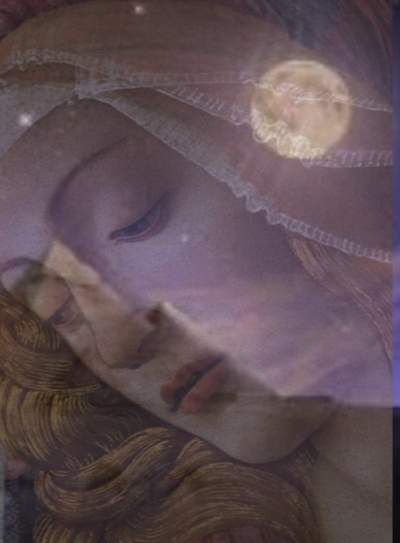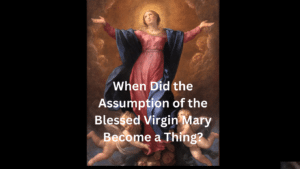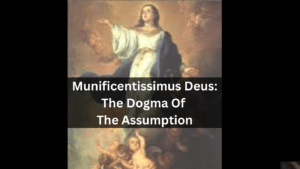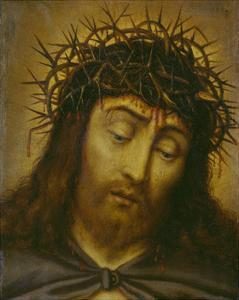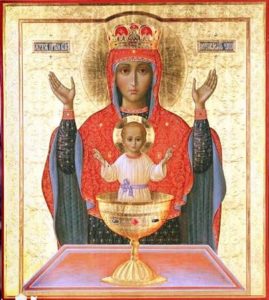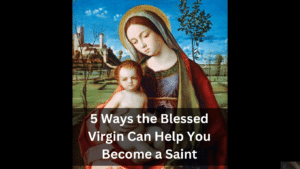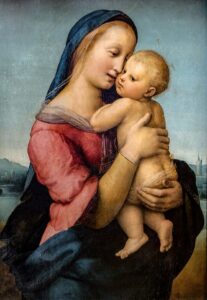ARE YOU A LENTEN LUNATIC? ON MARY, THE MOON AND LENT
We have all seen images of Mary and the moon, for example, that of Our Lady of Guadalupe depicted as standing on a crescent moon.
Scripture itself tells contains such imagery.
“…And a great sign appeared in heaven: A woman clothed with the sun, and the moon under her feet, and on her head a crown of twelve stars.”
Rev. 12: 1-2
But what is the connection between Mary, the moon and Lent?
Lent is the Reason for this Season
In a previous article, the “Triduum of Fire” was reviewed as a three-day observance that marks the conclusion of the Christmas Season.
At this point in the year, it is time then to now turn our thoughts towards Lent.
This year we made the unusually smooth transition directly to the pre-Lenten season beginning with Septuagisma Sunday a couple of weeks ago (or Shrovetide for Protestants Catholics who observe the modern liturgical calendar).
The end of this unofficial Triduum conveniently brackets the earliest possible start of Lent which is February 4, although such a very early start is uncommon and only happens once every couple hundred years.
More commonly, Lent starts in mid- to late February or early March. March 10th is the latest possible start date for Lent. More on the hows and whys of the Lenten start dates later.
This time of preparation between Christmas and Lent is marked by Jesus and the Apostles talking about the Old Law and how it was to be fulfilled and re-ordered. This suitably prepares us for stories about Jesus and His teachings that will follow during Lent.
The Lenten season then is kicked off by Jesus’ 40 days in the desert and the beginnings of His public ministry.
We must note the wisdom of God to put Lent, this time when we commit to work on ourselves in the darkest days, and for many, the least busy time of the year. This spiritual reality is signified by the coldness and darkness.
Assuming we put forth the rigorous work on our personal sanctity during Lent ,we can reap the benefits of this new “springtime” of a renewed soul.
The Lunar Cycle and Easter
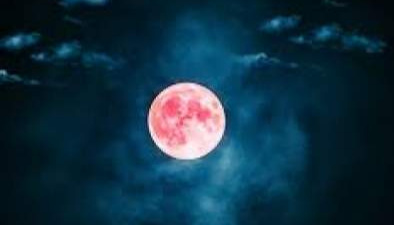
The variation in the start of Lent traces backwards to the date of Easter and how it was determined at the Council of Nicea in 325 AD.
They decided that the Sunday after the first full moon of Spring is the date of Easter. This allows Easter to fall anywhere between March 22 and April 25.
According to many traditions, the agony of the garden was during a full moon. According to the private revelations of mystic Anne Catherine Emmerich, in the Dolorous Passion of Our Lord Jesus Christ , it was even a blood moon (the moon appear reddish), which is attributable to a total lunar eclipse.
If the full moon falls on a Sunday, Easter gets pushed back one week, recognizing this tradition.
The full moon has since been attributed to chaotic and nefarious behavior, explaining the origin of the word “lunatic.”
While the effect on human behavior has never been scientifically proven, many people working in law enforcement and emergency rooms would disagree!
A 2016 WSJ article provides anecdotal evidence of strange emergency room visits during a blood moon.
Mary, the Moon & The Light of the Son
So why is a large bare rock out in space so predominantly featured in the Catholic faith, particularly for Lent and Easter?
Venerable Archbishop Fulton Sheen puts it this way:
“God who made the sun, also made the moon. The moon does not take away from the brilliance of the sun. All its light is reflected from the sun. The Blessed Mother reflects her Divine Son; without Him, she is nothing. With Him, she is the Mother of men.”
The World’s First Love: Mary, Mother of God, by Ven. Archbishop Fulton Sheen
Consider the beauty of moonlight: it is a mother’s soft reflection of that harsh light.
You cannot safely look directly at the Sun.
In the same way, we dare not believe we could gaze directly at God in our sinful, mortal state of being.
In the dark times of sin and suffering when it seems that God is absent, our Mother is there to care for us.
Scientists have learned that the light of the moon in the months of darkness in the Arctic is reflected with sufficient purity and brightness to support photosynthesis of ocean zooplankton and support life!
Thus, the life-giving light of Christ reflects off of the Blessed Virgin Mary in the midst of our darkest times.
The “Dark Side of the Moon” & the Sinlessness of Mary
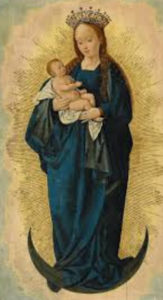
From multiple references in popular culture, many people believe that there is a dark side of the moon and that we have never seen the “dark side” of the moon—that only one face of the Moon is ever seen from Earth. This is because the Moon rotates around on its own axis in exactly the same time it takes to orbit the Earth in a synchronized orbit.
However, in reality, there is no dark side. Both sides of the Moon see the same amount of sunlight but only one face of the Moon is ever seen from Earth. Source.
This reminds me of the assumption made by Protestants that Mary has a dark, or sinful side, when in reality, she is perpetually Immaculate and free from sin.
The Benevolence of the Not-So-Distant Moon
The moon is understood to be a significant stabilizer of Earth’s orbital axis. Without it, astronomers have predicted that Earth’s tilt could vary as much as 85 degrees.
In this scenario, the sun would swing from being directly over the equator to directly over the poles over the course of a few million years, resulting is catastrophic climate changes.
This again aptly symbolizes Mary’s many apparitions and constant intercessions in which attempts to divert her children from the disaster of extreme and sinful ways and towards a more stable course towards our God.
The gravity of the moon also affects the earths tides, more so than the sun. The tides help stabilize the oceans, moderating temperatures and improving habitability for life. Without tidal dispersal of heat, the equator would be much hotter and the poles much cooler. Science has shown how valuable the moon is for generating and sustaining life.
The Lunar Eclipse & Christ’s Passion
According to NASA, on April 3, 33 AD, there was a three-hour partial lunar eclipse, the approximate time period suggested by the Bible for Christ’s crucifixion.
While God’s acts aren’t necessarily limited to those preordained by the cycles of creation, it would seem unlikely that He would duplicate a dramatic effect that would occur within a few years and thus lessen the impact of it.
This date is in agreement with one of the most exhaustive scholarly studies of when Jesus’ passion occurred.
In the book, “The Mystery of the Last Supper: Reconstructing the Final Days of Jesus, by Colin Humphreys, the author examines the references to the Jewish calendar in scripture combined with other historical evidence, which points to a 4/4/33 crucifixion date. This author then observes that the Last Supper would then also have conveniently fallen on the exact anniversary of the very first Passover.
The lunar eclipse that hid the sunlight during the crucifixion is readily recognized for its symbolism in signifying His death.
“Now from the sixth hour there was darkness over the whole earth, until the ninth hour.”
Matthew 27:45
Anne Catherine Emmerich saw the moon blazing as if on fire towards the end of the crucifixion when Our Lord entrusted the Blessed Mother to the care of the Apostle John, recognizing the burning agony of her heart. The Blessed Virgin was so overcome by grief at these words of Jesus that she almost fainted and was tended to by the few that remained at her side.
Back to the Beginning
“And God made two great lights: a greater light to rule the day; and a lesser light to rule the night: and the stars. And he set them in the firmament of heaven to shine upon the earth. And to rule the day and the night, and to divide the light and the darkness. And God saw that it was good.”
Genesis 1:16-18
The Dominican biblical commentator Cardinal Hugh of Saint-Cher says that:
“Christ is the greater light to rule the just, and Mary the lesser light to rule sinners.”
The Glories of Mary by St. Alphonus Liguori
The moon then, is a figure of Mary, by whose means those who are in the night of sin are enlightened.
Let us pray:
May the Blessed Mother direct the light of her Son on our hearts, to reveal to us our sins.
May she be our guiding light through the darkness of Lent towards her Son so that we can worthily celebrate finding Him in His Easter glory.
Amen.
- St. Joseph: Unleash the Terror of Demons - March 19, 2025
- Two Candles, Two Doves and a Sword| Feast of Candlemas - February 2, 2025
- Hey, Wise Up! The Epiphany Story Revealed in New Light - January 6, 2025
Gift-Boxed Crown of Thorns
References
- Douay-Rheims Bible
- The Dolorous Passion of Our Lord Jesus Christ by Anne Catherine Emmerich
- The Glories of Mary by St. Alphonsus Liguori
- The World’s First Love: Mary, Mother of God, by Ven. Archbishop Fulton Sheen
- The Mystery of the Last Supper: Reconstructing the Final Days of Jesus, by Colin Humphreys
- Article: “Hospitals Really Believe Bad Things Happen On a Full Moon“
- Article: “Moon Facts“
- Article: “Moonlight Helps Plankton Escape Predators During Arctic Winters“
- Article: “Without the Moon, Would There Be Life on Earth? Scientific American“

